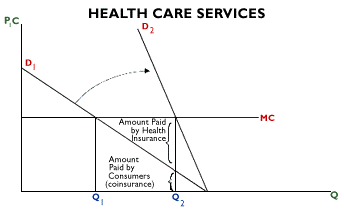In the last 30 years, the courts have increasingly used economic analysis to formulate antitrust law. More and more, competitive effects outweigh other tests of the impact of challenged behavior. Traditional, populist concerns have faded; concerns with effects on consumers have become preeminent. Now, all but the most routine cases require economic analysis. Government policy has undergone the same shift. The enforcement agencies use economic analysis to gauge the government’s interest in possible antitrust cases, to formulate the competitive effects theory, and to analyze data. Civil antitrust litigation has become a joint effort of attorneys and economists.
Attacking the Problem
Experience has shown that even apparently straightforward antitrust cases may resist easy analysis. A legal approach, fitting case law to the matter at hand, is often difficult without economic analysis. Likewise, economic reasoning, no matter how elegant, will not suffice unless firmly grounded in the facts. The first steps of economic analysis in antitrust litigation are the most important ones.
Secretariat Economists begins by identifying and analyzing those issues most critical to the outcome of the economic case. Later work builds upon this understanding. This approach produces a sound economic analysis consistent with the legal strategy.
Secretariat Economists professionals have analyzed many industries. As a result of this industry background and Secretariat Economists’ experience with a variety of economic issues, Secretariat Economists professionals are likely to have a running start on a given case. More importantly, Secretariat Economists has developed efficient techniques to gather accurate information on the subtleties of any market.

Further, as the field of antitrust continues to develop, new issues come to the fore. The experience of Secretariat Economists professionals enables them to address these new issues. For example, the antitrust agencies increasingly pursue investigations on issues concerning industries with differentiated products. Antitrust questions in differentiated products industries often require extensive quantitative analysis as antitrust agencies utilize sophisticated econometric models in their analyses. Secretariat Economists professionals are well versed in state-of-the-art econometric techniques and have estimated econometric models in several cases involving differentiated products.
The figure illustrates the Herfindahl-Hirschman index for a four-firm industry. The contribution of each firm (a,b,c,d) and its relative importance in the industry is represented by a square. The two rectangular areas (a x b) represent the change in the HHI due to a merger between firms a and b.
Antitrust Litigation
Antitrust litigation is an important part of Secretariat Economists’ practice. Secretariat Economists professionals have participated as consultants in private and government antitrust cases, on such issues as monopolization, price fixing, dealer termination, price discrimination, vertical restraints, and predation. EI economists have consulted with private litigants and testified about market definition, market power, competitive impact, business justifications, and damages.
Secretariat Economists professionals have had more than 100 years of combined employment experience at the Department of Justice and the Federal Trade Commission. With this first-hand experience, Secretariat Economists I understands the concerns and requirements of antitrust enforcement officials. Secretariat Economists can assess the likelihood of government involvement in a contemplated action, enabling the client to make well-informed strategic decisions.
Because of its experience, Secretariat Economists can help attorneys review required filings for deficiencies that could cause delay and misunderstanding. By focusing the analysis on the important issues in a timely manner, Secretariat Economists presentations of economic arguments to the enforcement agencies have helped to terminate merger investigations before the “second request” stage.
In addition to their federal antitrust experience, Secretariat Economists professionals also have significant experience dealing with, and working for, state and foreign antitrust enforcement agencies.
Experience
Secretariat Economists has experience with practically every antitrust issue on which an economist can counsel and testify, including the following:
- Codes of Ethic
- Deceptive Advertising
- Entry
- Essential Facilities
- Exclusive Dealing
- Failing Firm
- Information Exchanges
- Joint Ventures
- Lock-In
- Market Definition
- Market Share and Market Power
- Mergers
- Monopolization
- Non-Compete Clauses
- Predatory Practices
- Price Discrimination
- Price Fixing
- Standards
- Tying Arrangements
- Vertical Restraints



